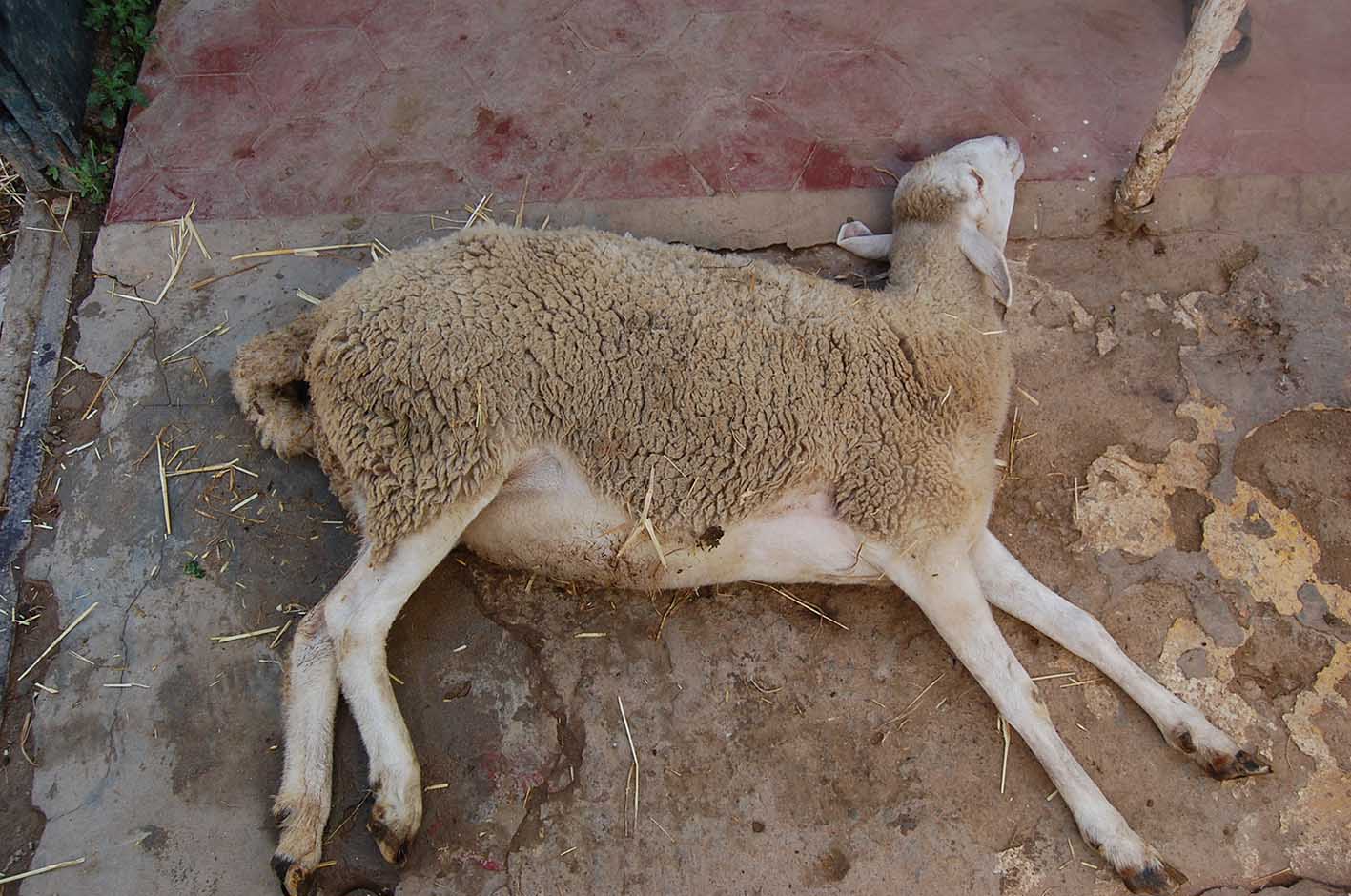Thirty-five animals have so far been infected following an outbreak of sheep and goat pox in the north, with the number expected to rise even further, Turkish Cypriot media said on Wednesday.
Earlier in the day, authorities said preventive measures are being taken, with the island’s Veterinary Services confirming that it will be inspecting livestock and enforcing a ban on movement of animals as a precaution.
On Wednesday afternoon, a statement from the Veterinary Services confirmed that a zone has been designated for on-site inspection of animals.
“Information has also been launched to inform livestock farmers by SMS to be alert to the possible appearance of symptoms or increased deaths, as well as other involved professionals, such as transporters of animals and products visiting farms, to carry out disinfection of vehicles,” CNA reported.
Information on the disease and the specific protection measures to be taken by farmers will also be posted on the Veterinary Services website, CNA said.
Additionally, spraying of vehicles at crossing points is also planned.
All sheep and goat farmers are invited to immediately inform the Veterinary Services’ district offices in case of increased deaths or suspicious symptoms.
Six cases were detected in two livestock units in Famagusta, according to director of the agriculture ministry, Andreas Gregoriou, and farmers in the Republic have been cautioned to keep a 3km distance radius away from the area where incidents were noted.
His department is in communication with British bases authorities, as well as the UN forces, the director said, and disinfection of vehicles traversing the area of the outbreak is underway.
The virus was detected in livestock units in Famagusta, Engomi and Acheritou and these three areas have been quarantined, while vaccination of all animals by the veterinary services in the north began on Tuesday, according to Yeni Duzen.
According the Press and Information Office the newspaper reported that a veterinary services spokesman in the north said that 20,000 vaccine doses have been delivered from Turkey and are enough to cover the affected areas.
“The entire area of Famagusta has been quarantined, and our goal is for the virus to be eliminated without spreading further so as to not hurt the farmers,” he told the newspaper, adding that the infected animals were slaughtered and buried according to procedure.
An update on the Near East University website said the virus was first detected in two farms in Famagusta on Friday evening, following which 16,200 animals were quarantined in 264 farms in the wider region.
According to NEU Veterinary Medicine professor, Deniz Seyrek İntaş the sheep and goat pox epidemic poses no threat to humans – provided that meat is well-cooked – as the virus is killed at a temperature of 60C.
Symptoms appear eight to 13 days after transmission the expert said, including fever, listlessness, conjunctivitis, tearing and runny nose.
The expert stated that sheep and goat pox, transmitted through a member of the Capripoxvirus genus from the Poxviridae family, is highly contagious and highly lethal in small ruminants, however, it does not pose an equivalent threat to cattle.
The severity of the disease can vary depending on the virus strain and the age and breed of the animal, but mortality rates are high in lambs and immature kids under one month old.
Fully grown animals’ chances of survival are low once infection moves to the lungs, and symptoms such as high fever, abortion, and weakness are observed.







Click here to change your cookie preferences